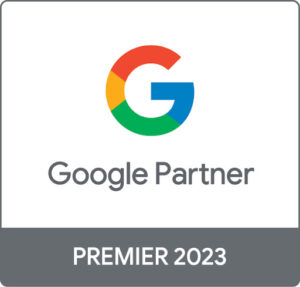Google has recently made significant strides to become more user-focused, and as recently as August with Google’s Helpful Content Update, it makes sense. Users are more brand aware these days, and more inclined to conduct their extensive research before committing to a purchase. This means that marketers should gear towards an omnichannel marketing approach to gain the attention of your audiences and streamline the customer journey process. A successful omnichannel marketing strategy involves integrating your various marketing channels so they work together in a coordinated way.
What Is Omnichannel Marketing?
Omnichannel marketing is a way to market your brand, products, and services to cater to the customer experience. Most customers are 73% more likely to use multiple channels than just shopping online or store only during their journey. As such, brands and digital marketers need to integrate their strategies across multiple online (search, website, socials, emails, paid adverts) and offline (retail, events, etc.) channels to ensure customers engage with your brand at every stage seamlessly.
Why Is Omnichannel Marketing Important?
Marketing campaigns can often still cover their bases and every platform with a multichannel marketing strategy. Still, the difference between the two is that the back-end integration that explains the users’ experience is not fully understood.
Omnichannel marketing considers the user’s experience and journey at every step. Instead of looking at ROIs and collecting data on a single channel at a time, optimising spreadsheets and creating multiple strategic decks, creating a cohesive campaign that stretches through SEO, social and PPC will create a more robust picture and give marketers more data to cater their strategies to users.
Integrating Your Marketing Channels
To create a successful omnichannel marketing strategy, all of your marketing channels need to feed into one another seamlessly. What’s essential for a great strategy is to not just allocate your budget to limited channels but investing in all the media your audience is likely to perform searches on. A stronger, seamless brand gives consistent, high-quality image assets, a unique and unified tone of voice and messaging to carry through the website and all other channels.
SEO & Omnichannel Marketing
With customers conducting more independent research, organic search is one of the first potential places top-of-funnel traffic will come into contact with. SEO is an essential first step to any omnichannel marketing strategy as a well-tuned organic search team will significantly improve your website’s discoverability.
Constant technical audits ensure that your website runs smoothly, especially for mobile users, all with user intent in mind. And a well-mapped out content and link-building plan will bring in customers looking for the answers to their research inquiries. SEO is essential to rank and drive relevant traffic to your site. And to remarket to those customers who slip through the net a little, combine a personalised email marketing campaign to bring them back in; whether it’s showing off a new promotion or remembering your customer at important times in their lives, they are sure to appreciate it.
PPC & Omnichannel Marketing
With PPC, while used to drive sales and promotions, the right strategy to build brand awareness is a crucial function to an omnichannel marketing campaign. An expert PPC team creating unique prospecting discovery and display ad campaigns, they will cast a wider net to gain larger top-of-funnel audiences. Building great and memorable brand awareness campaigns helps customers trust your brand before buying, even if they don’t convert immediately.
Tailored, hyper-specific shopping ads that targeted customers at the top are then sure to bring the customers back in for that sweet conversion. And if some customers slip through the cracks, a well-polished remarketing campaign will surely reel them back in and remind them why they were so close to making that purchase.
Social & Omnichannel Marketing
The daily use of social media these days is growing exponentially, with about 3 billion people worldwide and with smartphones making it accessible at the user’s fingertips. So having a brand running on social media and a knowledgeable social team is almost a must. It can build up brand awareness the same way PPC campaigns can, and let customers get to know your brand.
A specialised campaign for product category pages can run across Facebook, Instagram and Pinterest to target mid-funnel customers who previously clicked on a top-funnel Google Ad. And they can also directly create a conversion by enabling the integrated shopping tools on these social media platforms.
Conclusion
A successful eCommerce marketing strategy must be omnichannel to work across all channels, including SEO, PPC, and social media. Now is the time to invest in an effective omnichannel marketing strategy to compete for customers and increase your sales.
By choosing to work with Seed, a digital marketing agency that works in all of these areas in harmony, your customers will surely choose your brand over others. If you’re interested in one or more of our services to make your omnichannel campaigns, get in touch with us.










